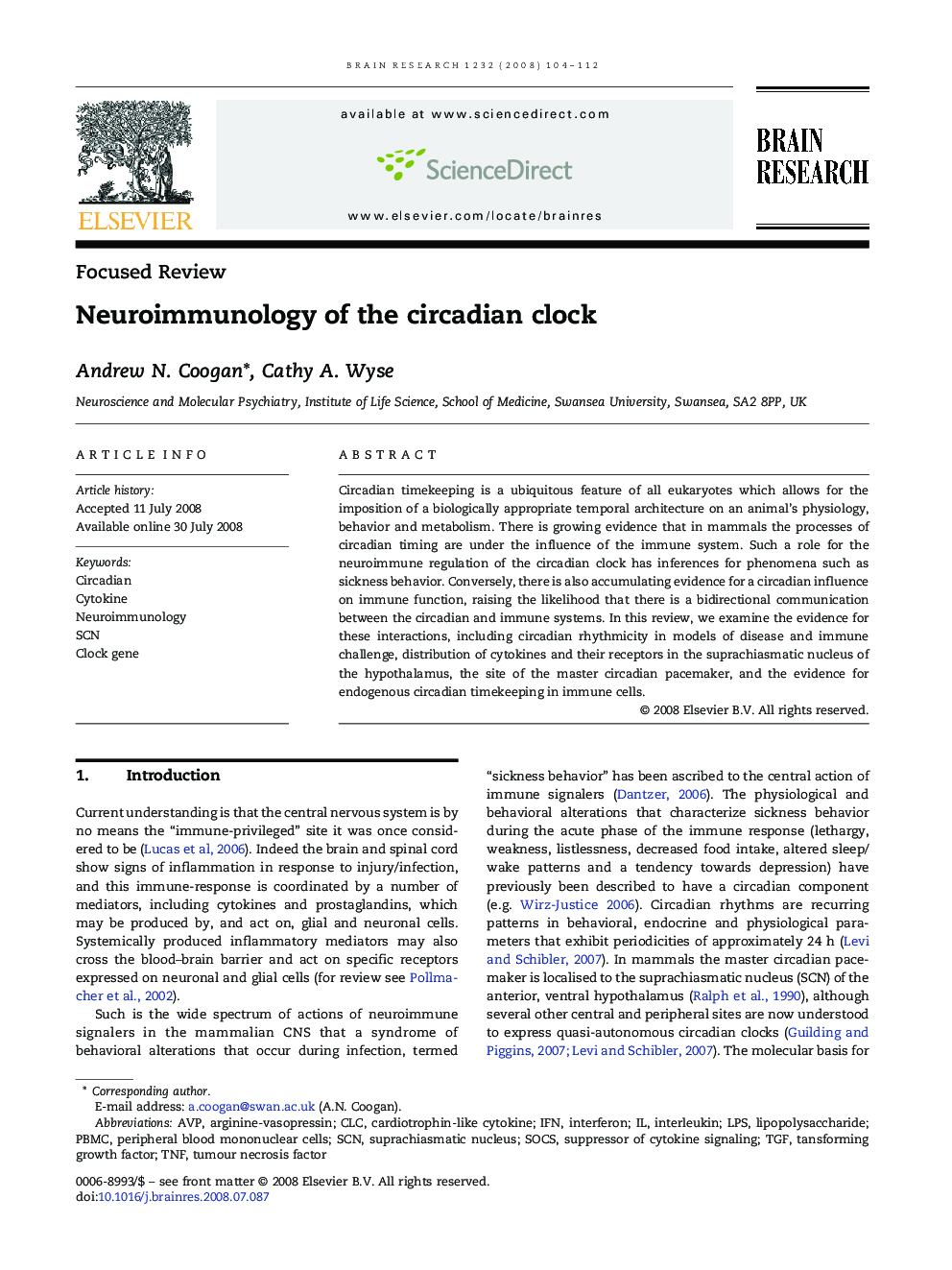| Article ID | Journal | Published Year | Pages | File Type |
|---|---|---|---|---|
| 4329235 | Brain Research | 2008 | 9 Pages |
Circadian timekeeping is a ubiquitous feature of all eukaryotes which allows for the imposition of a biologically appropriate temporal architecture on an animal's physiology, behavior and metabolism. There is growing evidence that in mammals the processes of circadian timing are under the influence of the immune system. Such a role for the neuroimmune regulation of the circadian clock has inferences for phenomena such as sickness behavior. Conversely, there is also accumulating evidence for a circadian influence on immune function, raising the likelihood that there is a bidirectional communication between the circadian and immune systems. In this review, we examine the evidence for these interactions, including circadian rhythmicity in models of disease and immune challenge, distribution of cytokines and their receptors in the suprachiasmatic nucleus of the hypothalamus, the site of the master circadian pacemaker, and the evidence for endogenous circadian timekeeping in immune cells.
